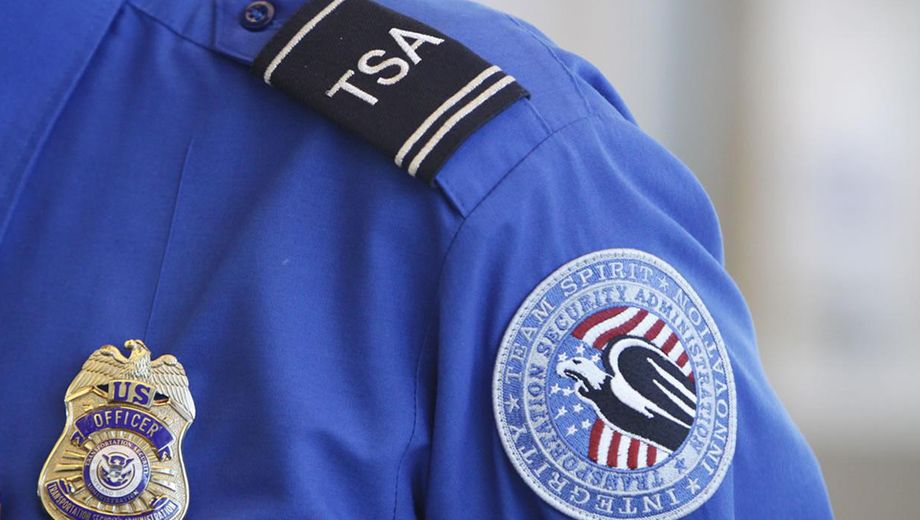Qantas, Virgin Australia flights to USA face tighter security

Travellers flying from Australia to the USA will undergo more rigorous security checks of technology including laptops and tablets before boarding their flights in the wake of new measures introduced by the US Department of Homeland Security overnight.
It represents one of the most sweeping security upgrades in the past decade, but stops short of a threatened ban on all electronic devices larger than a smartphone from aircraft cabins – a move flagged by Prime Minister Malcolm Turnbull in mid-May.
The tougher standards will apply not only to direct flights to the US by foreign airlines such as Qantas and Virgin Australia but also US carriers United Airlines, American Airlines and Delta Air Lines.
Although there is no immediate change for travellers on flights from Australia to the USA, it's understood that Australian passengers flying to the US can expect increased screening of personal electronic devices in the coming weeks.
Overall, the measures – which encompass all commercial flights to the United States – will impact an average of 325,000 passengers a day from 280 airports in 105 countries, according to the DHS.
Travellers can expect enhanced screening of electronic devices, more thorough vetting of passengers, increased use of bomb-sniffing dogs and measures to mitigate the potential threat posed by insider attacks.
The goal of the latest action was to react to intelligence showing terrorist groups have become more sophisticated in their bomb-making efforts and could hide explosives in a laptop or other electronic devices.
In a statement supplied to Australian Business Traveller this afternoon, Minister for Infrastructure and Transport Darren Chester said "Our government is working with US authorities to determine whether there is any impact on travellers from Australia."
"Australia’s overall terrorism threat level has not changed and at this stage, the Government does not intend to alter aviation security arrangements for inbound flights or domestic travel."
Comply, or face a laptop ban
Almost all airports, particularly those in developed nations that already have sophisticated security measures, should be able to meet the new requirements, according to the agency.
If a nation or an airline declines to impose the security actions or can’t, passengers could be forced to give up any inflight electronics larger than a mobile phone – in both carry-on bags and checked luggage – or flights could be banned altogether, with the Federal Aviation Administration pulling an airline’s certificate.
“Make no mistake: our enemies are constantly working to find new methods for disguising explosives, recruiting insiders and hijacking aircraft,” Homeland Security Secretary John Kelly said in Washington. "We are not standing on the sidelines as fanatics hatch new plots.”
“It is time that we raise the global baseline of aviation security. We cannot play international whack-a-mole with each new threat.”
The announcement followed months of discussions over extending a ban on laptops with airlines and other nations. The European Commission and many airlines had pushed back against US threats to extend the ban.
Pre-clearance outposts an option
Another measure to enhance security at airports outside the US is to encourage nations to install so-called ‘pre-screening centers’ in conjunction with the US Customs and Border Protection agency.
At over a dozen airports around the world such as Montreal, Abu Dhabi and Ireland’s Shannon, US-bound travelers are subject to heightened screening and customs and immigration checks before they board their flight.
Sweden is in the midst of joining, but other countries have balked because of the shared costs for CBP facilities and staffing.
No precise deadline
DHS didn’t release a precise deadline. Airlines will be asked to impose new security in phases, with short- and long-term goals, the agency official said. They are likely to be imposed in the coming months.
At least part of the enhanced security may involve use of newer screening technology, according to the official.
American Airlines earlier this month began the first US test of scanners that produce three-dimensional pictures of bags, providing a more detailed view that can detect explosives better than the X-ray machines currently used.
The technology uses ‘computed tomography’ borrowed from the medical field, which captures hundreds of X-ray images of an object.
The Transportation Security Administration is also conducting a separate test of a similar device at another airport.
Laptop bans may be relaxed
The measures build on a ban of electronic devices larger than mobile phones that was imposed in March for US-bound flights originating from 10 airports in the Middle East and North Africa.
In that ban, devices could be stored in checked bags, which are more thoroughly screened for explosives.
The announcement offers the first hope that airports caught in the March ban can resume normal operations.
If global hubs such as Dubai impose the new security regime, passengers flying to the US can once again bring their laptops aboard planes, according to a Homeland Security official who declined to be named discussing details.
Additional reporting by Bloomberg News

11 Jun 2017
Total posts 3
Great article.
24 Oct 2010
Total posts 2563
Thanks, the copy has been corrected to reflect this. Shannon's pre-clearance is of course a nice side-benefit to BA's all-business class flights from London City to New York!
Qantas
22 Oct 2012
Total posts 318
Don't forget that the 9/11 attacks were perpetrated from US domestic flights, yet there has been no change to screening for their domestic flights.
Qantas - Qantas Frequent Flyer
22 Jul 2015
Total posts 219
Sure about that? Travel monthly and domestic flights are as heavily policed
Qantas - Qantas Frequent Flyer
29 Jul 2013
Total posts 203
I travel domestically within the USA several times a month, while TSA presence and screening measures have increased significantly, I have to say that I actually feel less safe given the way 99% of TSA agents perform their duties. I feel much safer flying into the USA on a foreign carrier than I do flying domestically on any North America-based airline.
12 Dec 2012
Total posts 1031
This is all nothing more then fear mongering. The so called "enemies" have no desire to target aircraft in flight to/from or within western nations. The threat of hijacking attacks stopped 16 years ago. There have been no attempts to get bombs on board western aircraft since the shoe and underwear bombs.
Every single explosive attack since has been within the middle east and at no time did any weapon go through security, they all went around any screening with inside assistance (eg, baggage handlers).
The only targets terrorists have are soft. Targets that TSA and the like are creating. Lines on the land side of any screening checkpoint.
Qantas - Qantas Frequent Flyer
26 Sep 2014
Total posts 50
I agree with most of what you’ve stated save the assertion that it’s a fear mongering tactic because the aim isn’t to promote fear, but rather false strength. During the run to to the election for Bush 2’s they defiantly took the Wag the Dog [97] approach claim8ng the co7ntrybwas constantly under threat of attack. However, Dumph relies more on hate, isolation and a false strength with this being nothing more of an extension of that tactic and his campaign promises.
Qantas - Qantas Frequent Flyer
09 Jun 2011
Total posts 88
It's strange that the article talks about airlines screening passengers. I don't know of anywhere where this is an airline's responsibility and not a government agency's responsibility. And given this, then how reasonable is it to penalise airlines for non-compliance where it's arguably out of their hands?
Virgin Australia - Velocity Rewards
03 Aug 2016
Total posts 3
I'm OK with the ban if it makes it safer to travel. Wish they would put as much emphasis on gun laws to stop innocent Americans being killed by nut cases.
12 Dec 2012
Total posts 1031
Thing is, it doesn't make travel safer.
31 Mar 2016
Total posts 619
Title of the article is a bit misleading....should hv included UA, DL, AA, HA and JQ along with 'Qantas, Virgin Australia flights to USA face tighter security'. All 7 carriers serve U.S.-AU nonstop routes on a daily basis.
24 Oct 2010
Total posts 2563
Well, it should be obvious that we couldn't possibly list every airline in the heading..! Given that, it also makes sense to highlight Qantas and Virgin Australia in the title as these are the most relevant to our readers, being the leading Australian airlines which carry the majority of Australian travellers and have the most flights to the USA. We did, in the third par, make it clear that this will also affect US airlines.
QF
04 Apr 2014
Total posts 210
I travel in and out of Canada into the US often, the so called pre-clearance arrangements are nothing more than allowing airlines flying into of the US to use domestic gates when they arrive at their destination. Nothing to do with increased security levels, if anything the level of checking is less than you see at many US domestic airports. But it does make connections easier for sure.
Qantas - Qantas Frequent Flyer
30 Jan 2013
Total posts 3
A recent journey through LAX has left me perplexed. The screening process appeared chaotic, overwhelmed and made no sense at all. It did not provide any reassurance that the policies and procedures in place were beneficial...weaving through buildings,picking up baggage whilst in transit only to place it in a pile in another place in the building, inconsistent advice, little communication about onwards journeys and generally a stressful experience worrying that we were going to miss out connecting flight. Please try and refine current security practices without adding to the mix....not looking forward to the exoerience heading home
Hi Guest, join in the discussion on Qantas, Virgin Australia flights to USA face tighter security